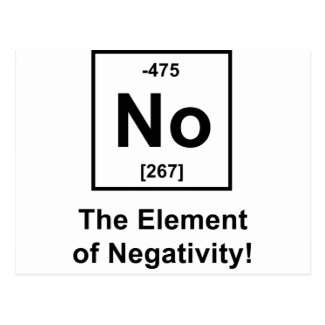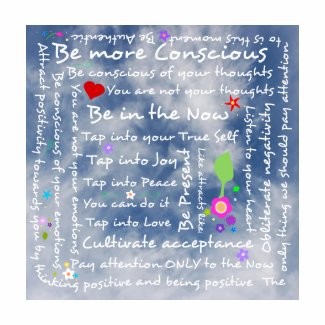Pessimism: It’s an unwanted epidemic of our times. It comes to us in a multitude of guises as people around us complain and spew forth negativity about their lives. They share how bad their life is, how difficult their relationships are, how little willpower they have to keep to their New Year’s resolution to work out more. They complain about their lack of money, their difficulty to find a job or if they do have a job, they complain about how much they hate it. They’re overweight, keep getting sick, feel tired and unhappy. It seems that they have much of what they don’t want and little of what they really do want.
Negativity is even rife in the ever-influential media, feeding our minds with bad news, tragedies, traumas, dramas and disasters. A BBC television program called “Grumpy Old Men” encourages viewers to enjoy watching grumpy middle aged men speak about everything that bothers them in the world.
Why are people so negative, and even more mysteriously, why do some people appear to revel in their negativity?
Why are people negative?
After lots of research, reading and personal reflection, we present ten possible theories for the causes of negativity:
1. We learn to be negative from the environment around us
From the moment we are born we are consistently and unthinkingly bombarded with negativity from our families, friends, peers, teachers and mass media. These people spread negativity and pessimism unconsciously rather than deliberately. They too were negatively imprinted by their environment and as long as they don’t question this imprint, they pass on the time-old repetitive pattern of unconscious negative thinking and behavior.
At a young age we are particularly open and susceptible to picking up other people’s tendencies because we don’t think much about what we’re doing. We just do things without consciously considering them, often learning by osmosis by copying and mimicking.
But all is not doom and gloom because there is a way out of this negative cycle! If you remain unaware of those moments when you’re being negative, and if you continue to allow negative thoughts and behaviors to persist, it may be true that you too will unwittingly pass the tendency to be negative onto the next unsuspecting generation. However, once you become aware of your thinking, conscious of the words that you use, conscious of your actions, and above all start catching yourself as the first inklings a negative feeling start bubbling within you, you can overcome not only your own negativity and stop it in its tracks, but you can also stop it from spreading to others around you and to future generations.
2. We have an evolutionary bias towards remembering negative things
Our biology may have something to do with the widespread negativity epidemic. As living animals, we are naturally concerned with our survival. As the saying goes, “safety first”. One way to ensure that we live is to be extremely vigilant of anything that might threaten our survival. For example, when looking at a beautiful landscape in Africa, it is beneficial for us to notice and pay close attention to the salivating lion that’s making its way towards us. It is quite clear where ignoring danger can lead! Similarly, it would have been beneficial to have a long-term memory of where a threat was located so that it could be avoided in the future.
Vigilance is always warranted when a life-threatening situation is possible, and unlike the joke t-shirt in the photo says, safey does come first. However in our generation many of the worries that we focus on are no longer life-threatening. Instead of only expressing negativity for things that threaten our existence, we worry and express negativity about things that threaten our reputation (e.g. insults) or things that threaten our personal comfort levels (e.g. the discomfort of sitting in a car for a long time in a traffic jam, or being exposed to music we don’t like). Not only do we express negativity about such situations, but often our long-term memory is activated so that we can remember a negative situation, like someone insulting us, long after it occurred.
All this is not entirely our fault. It is in our biology. As psychology expert Hara Estroff Marano aptly puts it: “nastiness just makes a bigger impact on our brains”. Negativity literally does hit us harder than good things. When measured in terms of the brain’s electrical activity, Dr Cacioppo of Ohio State University found that the brain created greater surges of electrical activity in response to negative stimuli than to positive ones. How much stronger are negative things? Marano’s research suggests that you need five good things to happen in order to balance out every one bad thing.
Having said all this, we do have the power of conscious awareness and controlled thinking to enable us to distinguish between helpful concerns (i.e. those that are life-saving) and hindering concerns (i.e. those that hinder happiness and have no beneficial purpose). Once the distinction is consciously made, we can begin working on letting go of hindering concerns.
3. We are negative because of lack of awareness and because it’s a habit
Once you’ve been exposed to the barrage of negativity from your environment, the reason you keep acting negatively is simply down to you not being aware that the situation can be different, and because it has become a habitual way of thinking and behaving. Negativity becomes an unthinking reflexive response to situations. Cultivating awareness and consciously making an effort to break the habit is the solution.
4. Our experiences condition us to be negative
When bad things happen, it can lead to negative expectation in the future. For example, if you fail an exam once, a part of you may have a fear or even an expectation that you’ll fail your next exam too. Similarly, when we “get up on the wrong side of bed” and our day is off to a bad start for whatever reason, a part of us thinks, “It’s going to be one of those days…” and indeed often the whole day ends up being disasterous.
In spiritual terms, it is said that when we focus on the negative, like worrying about how things may go wrong, we vibrate on lower levels of energy. Although scientifically-minded people dismiss energy-talk as pseudoscience, you can feel it in a person’s vibe. When someone is depressed or worried, their vibe feels heavier anad duller than someone who is upbeat and happy.
There is one famous spiritual law called the “Law of Attraction” which states that you draw to yourself experiences that are in line with your energy level, thoughts, feelings and expectations. According to this theory, where-ever your focus lies, be it on the positive or on the negative, Law of Attraction gives you what you think and focus on. Like attracts like. The more “I’m-just-being-realistic” negativity you expect from the world, the more negativity you’ll draw towards yourself. It’s like tuning in to a certain radio station where it’s inevitable that if you set your radio’s dial to 97.3FM you’ll hear 97.3FM transmitted back to you. So according to this theory, if you learn to “tune” your thoughts positively on what you want and not on what you don’t want or don’t have, you will be tuning yourself in to positive, good, happy experiences that you expect.
5. We are negative to vent our frustrations
Part of why we may enjoy expressing our negativity is because it feels like we’re offloading and casting it away. When we become worked-up over something, it can feel like a relief to complain about it, or release the negative energy by having our say in no uncertain terms, shouting at someone or saying something nasty.
Although feeling relief is a good thing, and our venting can release a build-up of negative emotion, this method of dealing with negativity does not direct you towards attracting positivity in your life. Once again, focusing on something negative will only perpetuate it rather than dissolve it. The trick is to be conscious when “bad” things happen. With enough consciousness, you will no longer attach the “bad” label to events. Instead you will see them for what they are: neutral occurrences that inherently have no negativity attached to them. By seeing things as neutral, there will be no tension build-up which needs to be vented. And by focusing on what you have, and what you do want rather than on what you lack, you will direct yourself in a positive direction.
6. We are negative about others to boost our own self-esteem
Another reason why negativity can be “pleasurable” is because if you do it by being negative about others, it can give you the illusion of boosting your self-esteem, which temporarily makes you feel good.
Whether they admit it or not, most people in the world have self-esteem issues to varying degrees. One way people sometimes feel a little better about themselves is by bringing down the value of others around them so that by default, they get the false impression that they are better than those they put down.
Put-downs such as these can have several forms including enjoying talking about other people’s misfortunes, vying for control and insisting that other people’s methods are not as good as your own, blaming others, making fun of others, nitpicking and making a big fuss over little faults and treating people as if they are inferior to you.
7. We are negative because sharing negativity is a bonding experience

When you join forces with others in moaning about something, it can give a satisfying feeling of togetherness and bonding with your fellow miserable grumps. A few common examples of activities where people can experience feelings of bonding brought on by sharing negativity include:
- Joint agreement about something that bothers us in everyday life. A lot of comedians use this kind of material to make us laugh as they say how much they hate things we all hate. This is also part of the power that makes the program “Grumpy Old Men” so successful.
- Joining forces to demonstrate against an issue e.g. anti-war campaigns and other movements of activism.
- Joining together to bully someone.
All these can create feelings of acceptance, belonging and togetherness within the group.
One of the greatest fears humans have is of being alone, so anything which supports togetherness is preferred, even if the very thing that brings people together is negativity!
Bonding and experiencing togetherness would be even more enjoyable if there was nothing negative about it, so finding alternative, positive ways of being together would be far more gratifying. Having a good laugh together, or gathering together for something positive (e.g. a pro-peace campaign rather than an anti-war one) feels a lot better than having a good moan together about something painful and unpleasant.
8. We focus on negativity because we think this is necessary in order to solve problems
When something is good, near perfection, there is little to improve and work with, so it occupies your thoughts less. When something is negative however, there is more to engage with. This makes negative things inherently more preoccupying. The irony is that according to the Law of Attraction, the more you focus on the problem, the more the problem will persist. The solution according to the Law of Attraction is to focus on what we do want, and where we want to go from here rather than focusing on the problem itself.
9. We are negative because we think it will make people want to care for us
When something bad happens to us, kind people give us attention and sympathy. For some, attention and sympathy can be confused with acceptance and love, and receiving sympathy feels so good that they rejoice in expelling stories of woe where-ever they go. Once they wake up to the fact that sympathy is not true love, they will have no reason to seek it out any more, because the positive feelings gained by receiving sympathy pale in comparison to experiencing true love.
10. We are negative because it helps us get what we want
Whilst some people want to gain sympathy in order to feel cared for, others use manipulation to get what they want. For example:
- At work, a man may underhandedly say negative things about a colleague to ensure he gets the promotion rather than his colleague.
- At home, a child may play one parent against the other or throw a tantrum to get what he wants
- In close relationships, your partner may complain about their day and about how tired they are as a manipulation to get you to volunteer to do the chores or give them a foot massage.
What drives people to manipulate others is a topic for another article, but the bottom line is that this “impure” desire to manipulate can be behind negative behavior.
It is important to remember that every thing which can be gained by manipulation can also be achieved without using the forces of the dark side! Why should you stop using manipulation if it’s been working for you? Because dark energy breeds more dark energy and by using it, you instil emotions like resentment, anger and negativity in those you manipulate. By contrast positivity breeds positivity. Using positivity to gain what you want is not only better for you, it is also better for everyone.
Whether you use negativity or positivity to get what you want, sometimes despite our best efforts, we still don’t immediately get what we desire. Control over external things and always getting what your desires demand is something that is not always within our reach. Letting such uncertain things determine your happiness is therefore a risky thing to do. Even when you do get what you wanted, the positive feeling felt after gaining external things only lasts a little while before it fades and you set your eyes on a new shiny desire to fill the emptiness. People like Eckhart Tolle who have glimpsed the joy of the completeness and power that comes from enlightenment tell us that this fleeting happiness from gaining “things” pales in comparison to the power and happiness felt when you feel in complete control of yourself. The only thing you can always control is how you feel; your internal self. What gives enlightened folk so much joy is feeling in complete control of their thoughts and feelings, and feeling completely in touch with their true Self. Once they achieve this, they feel complete without needing external things; they are no longer slaves to their desires and nothing around them bothers them.
Related articles:
You can read more about how to overcome negativity in our article about how to be more positive
About the authors:
This article was written by Li-Or with contributions from Spiritual Counsellor, Janice.
Related Products
References
1. Marano H. 2003. Our Brain’s Negative Bias. Psychology Today.
2. Hicks & Hicks. 2005. Ask and It Is Given: Learning to Manifest Your Desires. Hay House













People are negative because of lack of confidence and bad experinces in the past.